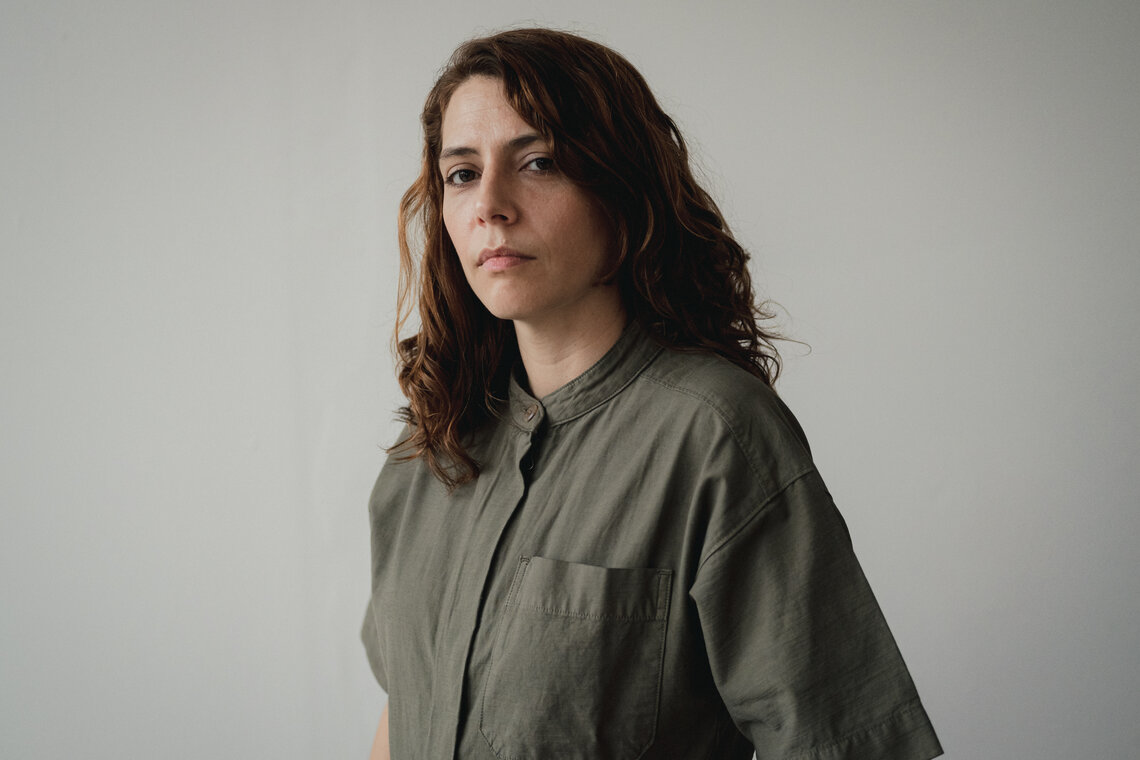The following interview appeared as an extract in BAFTA's official 2022 Awards brochure, which is now available on Issuu.
BAFTA Breakthrough showcases and supports the next generation of creative talent in film, games and television in the UK, India and the US. They are all exciting prospects at a critical ‘breakthrough’ moment in their careers. One of the 2021 Breakthrough US participants, cinematographer Anna Franquesa-Solano, tells us her story in her own words.
INTERVIEW: Toby Weidmann
 ©Alexey Kosorukov, 2021
©Alexey Kosorukov, 2021
I realised I didn’t want to study other people’s work, I wanted to create something myself.
I studied art history. I guess it all has to do with storytelling. I was always interested in visual storytelling, like in paintings, so I studied it at university for four years. By the end of it, the only thing I knew was that I didn’t want to study other people’s work, I wanted to create something myself. It took me a while to understand what that was. It was just by coincidence that I ended up working on a short film, just for fun, it opened up a whole new world to me, of possibilities that had never crossed my mind before. For some reason, I had just thought film was something that you go to watch in the cinema, it wasn’t something that I could ever do. It was never a possibility. It was not part of my world in Barcelona; the Spanish film industry is just not really that prominent.
Since I was a teenager, I’ve also loved photography, but I never thought of being a photographer, even though I had a dark room at home and liked to develop my own film, albeit not on a professional level. So, if you put all the pieces together, it starts to make sense: the visual storytelling of art and then photography and the short film. Everything just clicked.
You can only really learn cinematography through experience.
I decided to study filmmaking, because at the beginning I had no idea who does what on a set. I mean, who is the cinematographer and what do they do? A lot of people don’t know – they love movies but they don’t know what the crew does. People think the director of photography just takes photographs. [Laughs] But it went very organically from there. I just found my place.
I realised after a year that all my student projects were silent; that my way to tell a story was through images, not dialogue or writing. That was my medium to connect and tell stories. So I decided to focus on cinematography. I moved to New York. In my head, it was only a temporary thing, but I’ve been there more than 12 years now. I graduated in cinematography [from the New York Film Academy] and little by little I’ve just got to where I am now. I’m currently doing the biggest project I’ve ever done – a television show for Amazon Prime, with Nicole Kidman as our lead [called Expats]. Every morning I wake up and think, ‘Whoa! How did I end up here? I’m in Hollywood. This is very strange.’ [Laughs]
You can only really learn cinematography through experience. I started doing small projects for free, to get my experience. To pay the rent, I was gaffing [a gaffer is a film’s chief lighting technician]. How to deal with lighting is much more mysterious, complex and unknown to me than dealing with a camera. So I really wanted to learn how it was done. It’s another way of storytelling – what you see, how you see it, the mood you create through lighting. It is non-tangible, there is a mystery to it. How do you shape it? How do you create those images that you studied, that you liked, that you researched?
So I started working on small projects as a gaffer, a few indie feature films, but enough to see other people work and understand the techniques. I also did some focus pulling, often combining both jobs. But there is a moment when you have to say, ‘OK, I’m not taking those jobs anymore, I’m ready.’ It does take time and patience, but you will get there...
It’s very rewarding to feel like you’re part of a community, that you and your work are included.
I heard about BAFTA Breakthrough through my agent. I thought it sounded great. I love European movies, as a European myself, and BAFTA is representative of a lot of great movies and directors, so just to be involved in the organisation was already something I was interested in. It’s also very rewarding to feel like you’re part of a community, that you and your work are included in something. It feels nice.
I’m looking forward to connecting with anyone I admire, who can give me advice, maybe I can find something specific for my next project. I look up to many cinematographers, but if I had to name someone it would be Robbie Ryan [nominated for a BAFTA in 2019 for The Favourite]. It’s about the quality of his movies, as well as the decisions he makes and who he works with.
Anna’s Breakthrough project is The Farewell (2019), writer-director Lulu Wang’s introspective feature film about the inner machinations of a Chinese family.
Click here for more on Breakthrough. BAFTA Breakthrough is supported by Netflix in the UK, USA and India.





